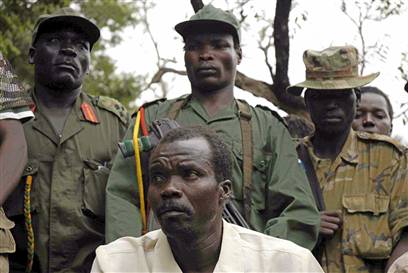South Sudanese rebels dismiss alleged links with LRA
September 8, 2014 (ADDIS ABABA) – The South Sudanese rebel faction of the Sudan People’s Liberation Movement (SPLM in Opposition) has dismissed recent allegations that the rebel group under the leadership of the former vice-president Riek Machar had links to the notorious Ugandan rebels of the Lord’s Resistance Army (LRA).

Dak said the SPLM in Opposition has no connection or contact with the LRA, adding there was no reason to do so.
“There would be no reason for us to team up with the LRA. They are a foreign rebel group. We don’t share a country nor the principles and objectives we fight for. In addition, we are capable of resisting the regime,” he added.
The rebel leader’s spokesperson added that it was president Salva Kiir’s government which is known for hiring foreign troops, rebels and mercenaries to fight for the regime.
Dak was responding to an article published on Sudan Tribune, which alleged that the South Sudanese rebel group had linked with LRA rebels which are thought to be based in Kafia Kingi on the Sudanese border.
The report cited the US Congressional Research Service 5 which reported to the UN Security Council (UNSC) on 15 May that “credible sources suggest that LRA leader Joseph Kony and senior LRA commanders have recently returned to seek safe haven in Sudanese-controlled areas” of Kafia Kingi, despite Sudanese government denials”.
The congressional report did not, however, mention any direct links between Machar’s group and that of the LRA.
But Steve Paterno, a South Sudanese writer based in the United States, alleged that the South Sudanese and Ugandan rebels had linked.
“Early this year, Joseph Kony dispatched a contingent of the rebels under the command of one of his able fighters, Dominic Ongwen, in order to reinforce the South Sudanese rebels in Upper Nile,” Paterno wrote.
He also alleged that the LRA rebels were planning to move out of Kafia Kingi from the farthest west at the border with Western Bahr el Ghazal state to Maban area of Upper Nile state in the farthest east in order to walk to Equatoria region.
However, Dak argues that Kafia Kingi was still under the control of the Sudanese government, adding that it would also take the LRA rebels to trek nearly 2,000 kilometers going around to reach Maban before further walking to Equatoria as alleged.
The rebels spokesman further explained that their resistance movement had clear vision and objectives to pursue as well as capable South Sudanese freedom fighters to resist the “dictatorial regime”.
Between 2006 and 2008, Machar almost succeeded in mediating the Juba-hosted peace talks between the LRA and Ugandan government when the Ugandan rebel leader Joseph Kony refused to sign the text of the final peace agreement.
President Yoweri Museveni in 2008 signed the document on behalf of his government.
Although the peace process brought back peace and stability to Northern Uganda, which was mostly affected by the war, the LRA shifted its forces to Garamba Park in the Democratic Republic of Congo (DRC) and continued to attack civilians in South Sudan and Congo.
However, regional forces of Uganda, South Sudan, Congo, Central African Republic, and USA mounted military assaults against their positions, pushing the LRA to establish camps deep in the north-west of South Sudan, in Western Bahr Ghazal state.
(ST)
